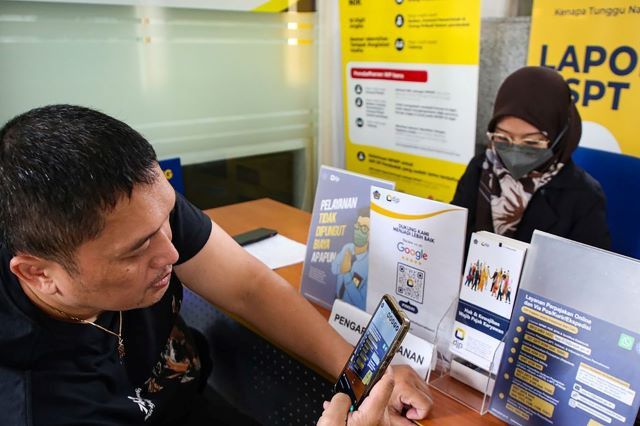Popular Reads
Top Results
Can't find what you're looking for?
View all search resultsPopular Reads
Top Results
Can't find what you're looking for?
View all search resultsPresidential election unveils Indonesia’s taxation challenges
If either the Anies-Muhaimin or Prabowo-Gibran pair candidate succeeds in fulfilling its promises, Indonesia, currently categorized as a middle-income country, may ascend to the ranks of advanced nations as a high-income country.
Change text size
Gift Premium Articles
to Anyone

In the run-up to the presidential election on Feb.14, challenges in the taxation sector have been some of the most widely discussed topics in the ongoing political campaigns.
Drawing parallels with the 2016 United States presidential election, where Hillary Clinton's proposed tax increases on the wealthy played a role in her defeat to Donald Trump, it is evident that tax policies can sway political outcomes. Trump, advocating for tax reductions, secured substantial support that catapulted him into the White House.
With almost 80 percent of Indonesia's state revenue for economic development stemming from taxes, discussions about promising economic growth and broadening the tax base can be pivotal.
Taxes, serving as the primary instrument for implementing macroeconomic policies, mobilizing state revenue and fostering economic growth and poverty reduction underscore the need for sustainable tax reforms. The World Bank in 2021 highlighted how numerous countries needed to embark on comprehensive tax reforms to spur their economic growth.
Despite a shared focus on tax reform, the three presidential candidates offer distinct approaches. The candidate pair of Anies Baswedan and Muhaimin Iskandar emphasizes fair tax regulations that do not burden the public, aligning with the principle of equity in Indonesian taxation. They pledge to control tax incentives, broaden the tax base and increase the tax ratio to 13-16 percent of gross domestic product (GDP) during their five-year leadership if elected.
In contrast, the candidate pair of Prabowo Subianto and Gibran Rakabuming Raka vows to establish a National Revenue Agency, transforming the Taxation Directorate General, which is currently under the Finance Ministry, into an independent institution. This commitment, integral to their political campaign and part of their first 100-day program if elected, includes an ambitious target of raising the tax ratio to 23 percent of GDP, presenting a promising vision for Indonesia's future economic and tax landscape.

However, these promises are quite ambitious and there are challenges to their realization. Even during President Joko “Jokowi” Widodo’s decade-long term, a campaign pledge to establish the National Revenue Agency in the 2014 presidential campaign remains unfulfilled. Based on data from the Finance Ministry, the tax ratio in 2023 stood at 10.2 percent, down from 10.85 percent in 2014 when Jokowi came to power.


















